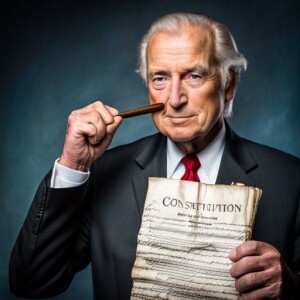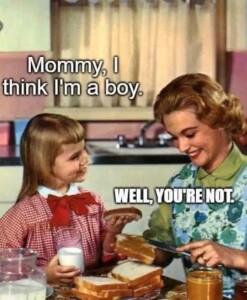Majority Matters: Why Government Should Represent the Many, Not the Few

The United States government is supposed to represent every citizen, regardless of their race, gender, or religion. However, if the government focuses solely on the needs of minority groups, it can create an imbalance of power that can be detrimental to the majority. Imagine a scenario where the government prioritizes the needs of a small group of wealthy individuals over the needs of the broader population. This could lead to an unfair distribution of power and a society that is not truly democratic.
On the other hand, it is crucial to acknowledge the needs and interests of minority groups. In a diverse country like the United States, there are various groups with different needs and concerns. The government must ensure that every citizen has equal access to opportunities and resources, regardless of their background or identity.
In certain cases, catering to the needs of minority groups can benefit the majority. For example, providing language services or accommodations for people with disabilities can make society more inclusive and accessible for everyone. Similarly, policies that promote diversity and inclusion in the workplace can lead to better outcomes for businesses and the economy as a whole.
The key to balancing the needs of minority and majority groups is to ensure that the government is working in the best interest of all citizens. This means prioritizing fairness, equity, and justice and listening to diverse perspectives. It also requires putting the common good above narrow self-interest. By doing so, the government can create a more just and equitable society that benefits everyone.
Preserving the Past, Embracing the Future: How AI Safeguards Human History

Artificial Intelligence (AI) has sparked a multitude of questions about its impact on human history. Will it erase our past completely? While it’s true that AI has the power to change the way we live, work and interact with each other, it’s unlikely to wipe out human history. On the flip side, AI can actually enhance our understanding of history by providing insights that were previously beyond our reach.
One of the biggest advantages of AI is its ability to preserve and interpret historical artifacts and documents. For instance, AI can decode ancient scripts that are incomprehensible to humans. It can also aid in the restoration and conservation of deteriorating artifacts. But that’s not all, AI can create virtual reality experiences that allow us to interact with historical events and places in a way that was once impossible.
Moreover, AI can help historians analyze massive amounts of data to uncover new insights about the past. By employing natural language processing tools, researchers can identify patterns and trends in historical texts, furthering our knowledge of history. Additionally, AI can create visualizations that illustrate the relationships between different factors that influenced historical events.
However, it’s important to note that AI can’t replace human interpretation. While AI can help us analyze data and discover new insights, it is up to humans to interpret these findings and make sense of them. History is more than a mere collection of data points, it’s a complex and nuanced narrative that requires human empathy and understanding to fully comprehend.
In conclusion, it’s unlikely that AI will erase human history. Instead, AI can complement human efforts to preserve, interpret, and learn from our past. Together, humans and AI can deepen our understanding of history and use that knowledge to inform our decisions about the future. By leveraging AI technologies responsibly and ethically, we can enrich our appreciation of human history and ensure that its richness is safeguarded for future generations.
Juneteenth is a Holiday That Marks the End of Slavery
Juneteenth is a holiday that marks the end of slavery in the United States and is celebrated annually on June 19th. This day is a vibrant reminder of the tenacity and triumphs of African Americans throughout history. It all began in Galveston, Texas in 1865, when Union General Gordon Granger came to the city to deliver long-awaited news. He announced the end of the Civil War and the emancipation of enslaved individuals in Texas, two and a half years after President Abraham Lincoln issued the Emancipation Proclamation.
Juneteenth is known by many names, including Freedom Day, Jubilee Day, Liberation Day, and Emancipation Day. African Americans across the United States mark the occasion with parades, barbecues, and other social gatherings. It is a day of reflection and remembrance of the struggles and achievements of African Americans throughout history.
The holiday serves as an opportunity to celebrate progress and educate individuals about the continued fight for racial justice and equality. More recently, there has been a push to make Juneteenth a national holiday in the United States, with many states already recognizing the day as an official holiday.
Overall, Juneteenth is a crucial holiday that honors the resilience and strength of African Americans in the face of adversity and oppression. It is a time to pause and reflect on the progress made towards racial equality and to recognize the work that still needs to be done.
Celebrating Fatherhood: Reflections on Father’s Day

Father’s Day is more than just a day on the calendar. It’s a day to show our dads and father figures how much they mean to us. It’s a day to honor their selflessness, sacrifices, and unwavering love. This special day is celebrated in many countries around the world, usually on the third Sunday of June, to acknowledge the vital role fathers play in our lives.
The concept of Father’s Day was born out of one woman’s admiration for her father. Sonora Smart Dodd proposed the idea of setting aside a day to honor fathers in the early 20th century, inspired by the way her single father raised her and her siblings. Little did she know that her idea would become a global celebration of fatherhood.
Father’s Day is an opportunity to recognize the love, support, and guidance that fathers provide to their children. It’s a chance to appreciate the sacrifices they make to provide for their families and the countless hours they spend teaching, protecting, and nurturing their children. It’s also a time to reflect on the unique role that fathers play in shaping the lives of their children and the profound impact they have on their children’s development and well-being.
There are many ways to celebrate Father’s Day, from spending quality time with your dad or father figure to giving a thoughtful gift or expressing your gratitude through a heartfelt message. Some people choose to take their father out for a special meal, while others might plan an exciting activity or outing, like a hike, a round of golf, or a day at the beach. Whatever the form of celebration, the important thing is to take time to appreciate the role that fathers play in our lives and to let them know how much they are loved and valued.
In conclusion, Father’s Day is a special day to celebrate and honor the important contributions that fathers and father figures make to our lives. It’s a day to express our gratitude, love, and appreciation for the sacrifices they make and the love they give to their families. Whether it is through spending quality time together, giving a thoughtful gift, or expressing our feelings through words, Father’s Day is a special day to celebrate the special men in our lives who have helped shape us into who we are today.
Unmasking the Illusion: The Downside of Political Correctness

Political correctness, at its core, is a set of beliefs and practices that aim to promote inclusivity and prevent discrimination. While these intentions are admirable, the implementation of politically correct language and behavior has had a negative impact on free speech. The problem with political correctness is that it can create a culture of fear and self-censorship, where people are afraid to express their opinions for fear of being labeled as offensive or insensitive. This not only stifles free expression but also inhibits the exchange of ideas and the development of critical thinking skills.
In many cases, political correctness can also lead to the suppression of important discussions and debates, particularly on controversial topics. For example, if certain topics or viewpoints are deemed politically incorrect, they may be excluded from public discourse altogether. This can be detrimental to the democratic process, as it limits the diversity of ideas and perspectives that are necessary for a healthy democracy.
Furthermore, political correctness can also be used as a tool to silence dissenting opinions and to promote a particular agenda. This can be seen in cases where individuals or groups use accusations of political incorrectness as a way to shut down opposing views. This not only undermines free speech but also creates an environment of hostility and division.
In conclusion, while the goals of political correctness are laudable, its implementation can have a negative impact on free speech. By creating a culture of fear and self-censorship, suppressing important discussions and debates, and being used as a tool to silence dissenting opinions, political correctness can ultimately undermine the principles of democracy and free expression. Instead of promoting political correctness, it is important to encourage a culture of open dialogue and respectful debate, where all viewpoints are welcome and respected.
What is Flag Day?

Flag Day, a patriotic holiday celebrated every June 14th in the United States, commemorates the American flag’s significance as a symbol of freedom, unity, and democracy. The day is a reminder for Americans to honor and respect the flag, which embodies the country’s values and ideals of liberty, justice, and equality. On this special day, citizens are encouraged to display the flag at their homes and businesses, participate in parades and ceremonies, and delve deeper into the history and meaning of the flag.
Flag Day is also a time to recognize and honor the brave men and women who have served in the U.S. military, defending the country’s values and freedoms. It is a moment to reflect on the progress that has been made in achieving the ideals of the flag and the challenges that still need to be addressed.
Overall, Flag Day is a day of patriotism, unity, and respect for the flag and the values that it represents. It is an opportunity for Americans to come together and celebrate the nation’s accomplishments, while also acknowledging the work that still needs to be done to achieve a more perfect union. So let’s raise our flags high, and show our gratitude and reverence for the country we call home.
The Silver Screen and the Political Stage: Exploring the Intriguing Connection Between Hollywood and Politics

The intersection of Hollywood and politics is a fascinating and intricate topic. As an essential cultural institution in the United States, Hollywood has always had a profound impact on the nation’s political landscape. From its early days as a propaganda tool during World War I and II to the present day, Hollywood’s influence on politics has only grown. Nowadays, actors and filmmakers are increasingly involved in political activism and advocacy, making their mark on issues ranging from climate change to gun control.
One of Hollywood’s most notable impacts on politics is the significant role that celebrities play in presidential elections. Popular actors, musicians, and other celebrities often endorse political candidates and use their platforms to encourage their fans and followers to vote. Some celebrities have even thrown their hats into the political arena themselves, such as Ronald Reagan and Arnold Schwarzenegger.
Beyond electoral politics, Hollywood has been involved in social and political causes. Many actors and filmmakers have used their fame to raise awareness about issues like immigration reform, gun control, and climate change. Hollywood has also been a driving force in the fight for the rights of marginalized communities, such as the LGBTQ+ community and people of color.
However, the relationship between Hollywood and politics is not always harmonious. Some critics have accused Hollywood of pushing a liberal agenda and using its influence to promote specific political ideologies. Others have argued that Hollywood’s focus on entertainment and spectacle can distract from more meaningful political issues.
Nonetheless, it is clear that Hollywood will continue to play a crucial role in American politics for the foreseeable future. As a prominent cultural institution with a global influence, Hollywood has the power to shape public opinion and sway political outcomes. The question remains, however, whether this impact is positive or negative, and this topic will continue to be one of debate and discussion.
Is it Fair for Transgender Athletes to be Competing in Women’s Sports?
The issue of transgender biological males participating in women’s sports has ignited a heated debate in recent years. While some argue that inclusivity is paramount, others stress the significance of maintaining a fair playing field. The core concern lies in the physical differences between males and females. Biologically, males possess greater bone density, larger body structures, and higher testosterone levels than females. Allowing transgender biological males to compete in women’s sports can lead to an unfair advantage, putting the integrity of the sport in jeopardy.
The safety of female athletes is another pressing concern. Biological males are generally more physically dominant, and their inclusion in women’s sports can increase the risk of injury, especially in contact sports like boxing, MMA, and rugby.
However, supporters of inclusivity believe that transgender individuals have a right to participate in any activity they choose, including women’s sports. They argue that transgender individuals often face discrimination and exclusion, and allowing them to participate in women’s sports can promote acceptance and inclusivity.
It’s clear that this is a complex and multifaceted issue that requires careful consideration. While inclusivity is vital, it’s equally crucial to ensure fairness and safety for all athletes, regardless of their gender identity. Therefore, alternative solutions must be explored to address this contentious issue.

























